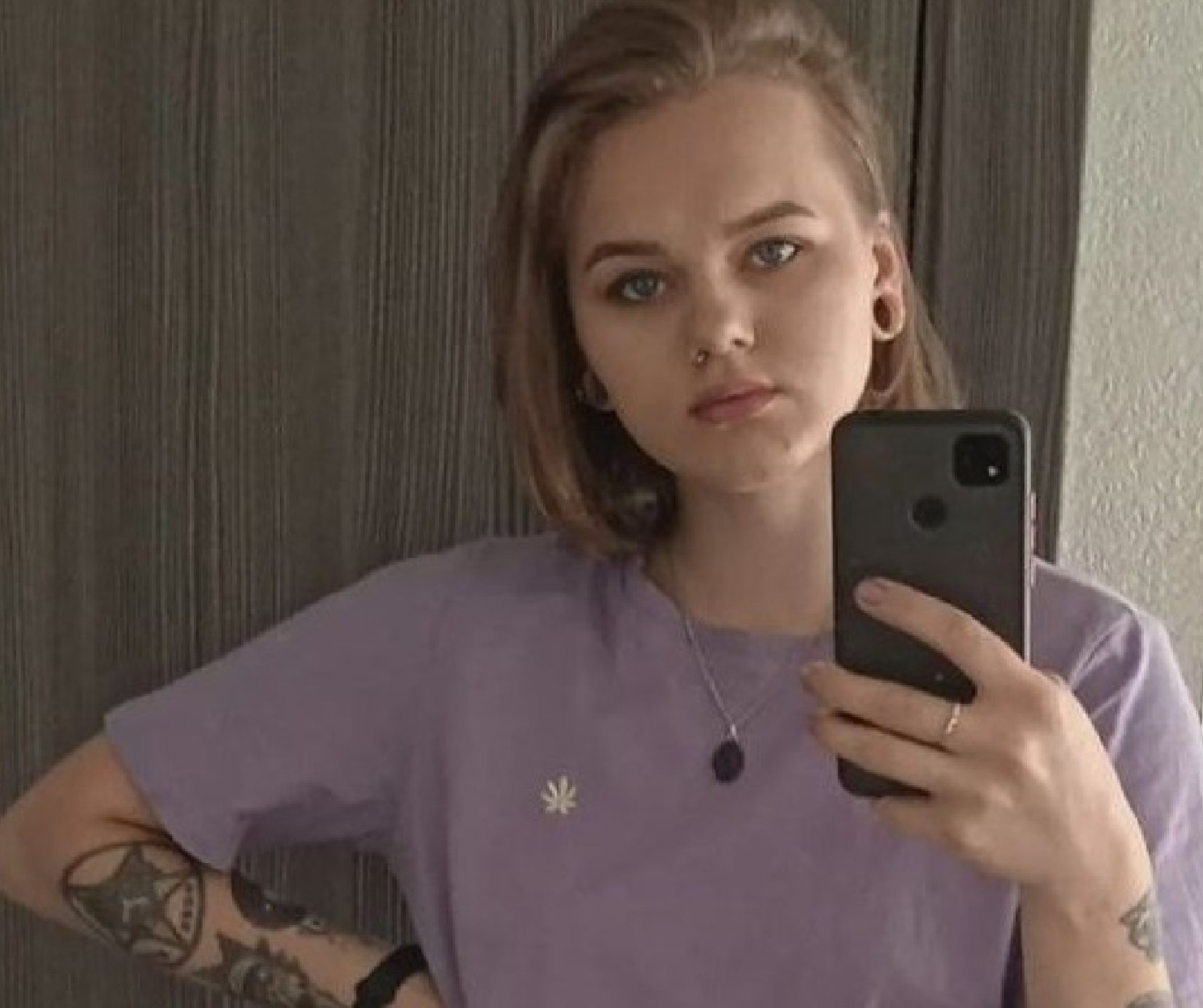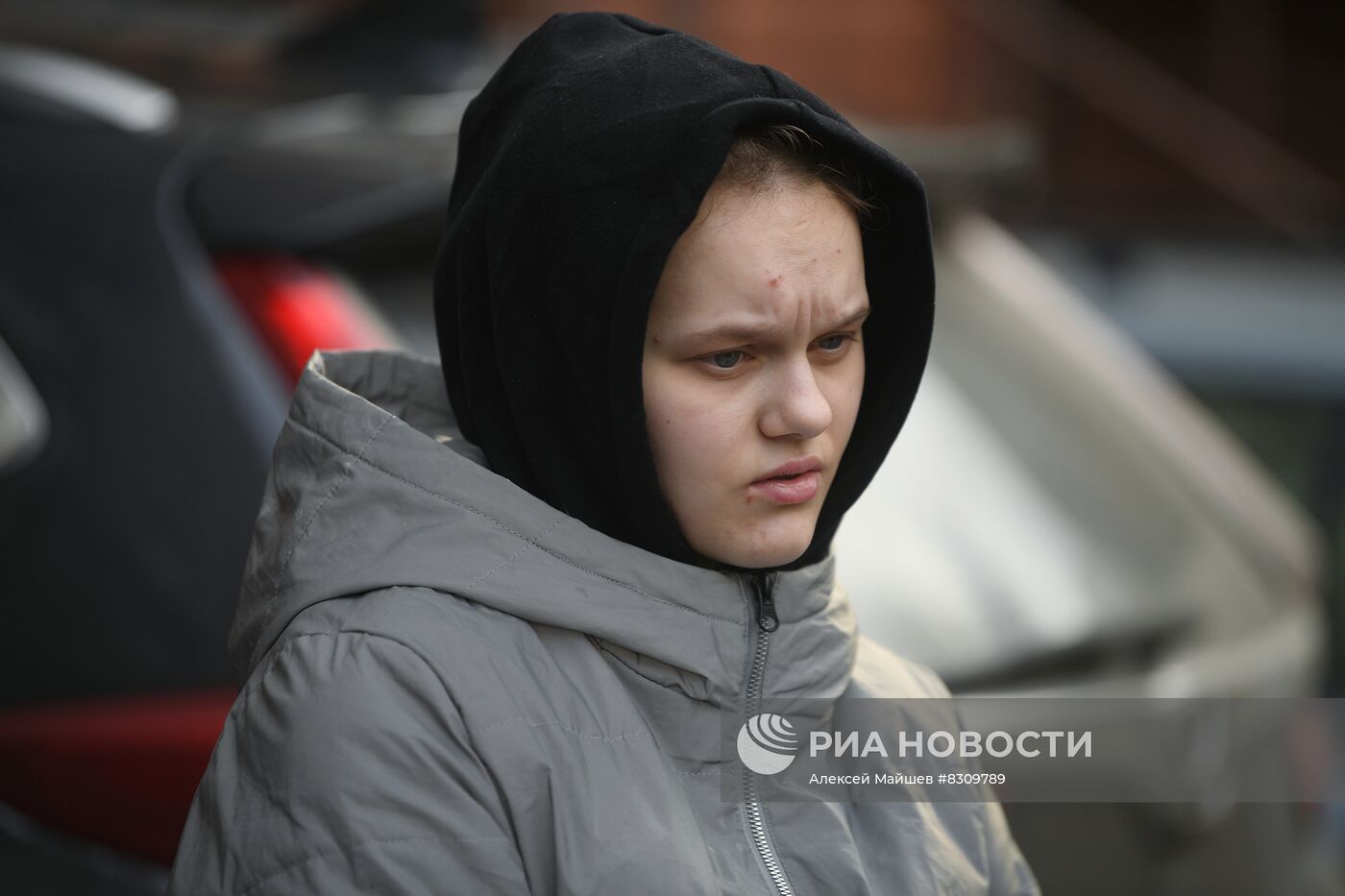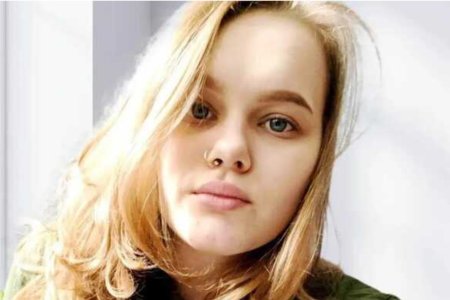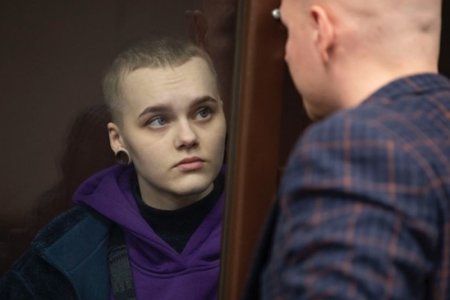
25-year-old Iryna Navalna has been held in Russian-occupied Donetsk since September 2022, with her mother convinced that she has been targeted because she shares the same surname as Russia’s most prominent political prisoner. There is every reason to believe that she was tortured or threatened into providing the ‘confession’ shown on Russian state television just hours after she was seized on the street in occupied Mariupol.
Iryna’s mother, Oleksandra Stoliar has spoken with both the ZMINA Human Rights Centre and the Russian independent publication Vazhniye Istorii [Important Stories] about her daughter’s captivity. The story probably begins in 2019 when Iryna formally adopted her mother’s maiden name, Navalna. Her maternal grandfather, who had played an important role in her upbringing, had no sons, and the move was intended to give him pleasure and show him that the family’s name would not die out.
That, however, was before Russia began its full-scale invasion of Ukraine, with Iryna’s native Mariupol coming under particularly savage attack. After three months of effective siege, the only way out of Mariupol was to Russia and from there to the Baltic Republics, Poland, and back to Ukraine. Iryna Navalna was the first to attempt this, leaving Mariupol on 9 May 2022, together with neighbours. During the invaders’ so-called ‘filtration’, Iryna was forced to stand, arms raised, against a wall, with the Russians holding a pistol to her head. One of the invaders asked: “Who wants to talk with Navalny’s daughter? Who wants to see her?” They also demanded to know if she had friends in Ukraine’s Azov regiment, and what their names were. She was held by the Russians for two and a half hours, but was eventually released, and allowed to leave for Russia, from where she crossed into Lithuania, then Poland, making her way back to Ukraine.

Unfortunately, Iryna’s grandmother on her father’s side had remained in Mariupol, and kept ringing her, complaining about how bad things were and pleading with her to come and stay for a while In August, Iryna left for Mariupol, hoping to spend time with her grandmother, to look for her two cats who had disappeared during the bombing, and to also retrieve valuable items, photo albums, etc. that they hadn’t been able to take when they first fled. Her mother tried to dissuade her, but Iryna was very young and underestimated the danger. She assumed that, since she had got through filtration once that her details would be on a database, and she would not have any problem.
She did manage to get into Mariupol and even found a pushbike on which she rode around the city, trying to find the cats and also photographing totally destroyed buildings.
It was on 27 September that all contact was lost with her. In the evening of that day, the Russian state-controlled RIA Novovsti posted a video on which the young woman was shown providing a ‘confession’ that has been repeated, with very few variations, on several occasions. She is supposed to have been paid money by someone from Ukraine’s Security Service [SBU] to collect a package, which she understood to be an explosive device, to take it to the Prymorsky district administration, and then return later and press a device in order to detonate it. It is claimed that this supposed ‘terrorist act’ was planned to disrupt the fake ‘referendum’ that Russia staged to claim justification for annexing more Ukrainian territory. Russia is, for the moment, maintaining its pretence about a supposed ‘Donetsk people’s republic’ [‘DPR’] with the source for the information on 27 September 2022 cited as the ‘DPR interior ministry’ At the beginning of November, RIA Novosti published more details and a video of a purported ‘investigative experiment’. Navalna is named in full, said to have ‘confessed and repented’, and to be facing ‘charges’ laid by Russia’s proxy ‘DPR’. The charges, of an attempted crime (Article 30) and of an “attempt to commit a terrorist act’ (Article 205) are from Russia’s criminal code.
By no means all such ‘videoed confessions’ give the detained person’s name, while here all reports mention that Iryna’s name is Navalna, show her passport, and may even repeat the name two or three times. Stoliar is sure that her daughter is suffering because of the surname she shares with Russia’s most popular opposition politician and political prisoner. “We never dreamed that there could be such repression over a surname. In Ukraine there’s a whole village of Navalnys, it’s a widespread surname,”, Stoliar told Vazhniye Istorii.
On 28 September, the day after she disappeared, Iryna was brought, in handcuffs, to her grandmother’s apartment, where they also carried out a search and interrogated the elderly woman. For a month after that, the family heard nothing. Iryna’s grandmother went everywhere, trying to find out where Iryna was being held, but was constantly told that she was not in this or that prison, etc.
Then on 28 October, so-called ‘investigators’ turned up at the grandmother’s home and told her about the charges laid against Iryna. It was almost a full month after this, on 23 November, that they were finally told that Iryna was imprisoned in the Donetsk SIZO [pre-trial remand prison].
Iryna had been seized and held incommunicado and any ‘confession’ was almost certainty obtained through torture or threats, against her or her grandmother. The latter was finally allowed a visit with Iryna in late November. She reported that her granddaughter was extremely pale, and covered in bruises and sores. She was originally held in the SIZO with women already serving sentences. She was, however, later transferred to a cell with Ukrainian prisoners of war, which also put an end to the beating during ‘interrogations’. Stoliar has also received information about Iryna and about the horrific conditions in the Donetsk SIZO from one of the prisoners of war who was released in an exchange. There is serious overcrowding, and the women were held in a basement without any heating and with the only window broken, making it even colder. Three of the women were not even allowed out for so-called ‘walks’ (generally in an enclosed courtyard or similar), with one of these Iryna.
The only good thing is that the SIZO administration have allowed Iryna’s grandmother to bring parcels, with food, medicine, items of hygiene, etc. Since the Russians are refusing to confirm that they are holding many of the women, their families cannot send parcels, so Iryna’s family has been trying to provide what they can for all the prisoners with Iryna.
All of the women had rashes, and Stoliar suspected that they were being fed some kind of poison. She turned to the Red Cross, and says that, after the publicity, her daughter was able to pass a message to her grandmother, thanking them for the medication, and saying that the rashes had begun healing. Her mother concludes that the publicity made them stop poisoning the women.
Iryna Navalna is one of many civilians whom the Russians or illegal, Russian-controlled entities are holding prisoner. Even were the charges to be true, Russia would have no right to apply its legislation on illegally occupied territory. There are, in any case, serious grounds for considering Iryna a victim of Russia’s illegal abductions, enforced disappearances and torture. There is effectively no chance of a ‘fair trial’ in the puppet ‘DPR’, and publicity is needed to try to get Russia to include her on the list of prisoners to be released.



